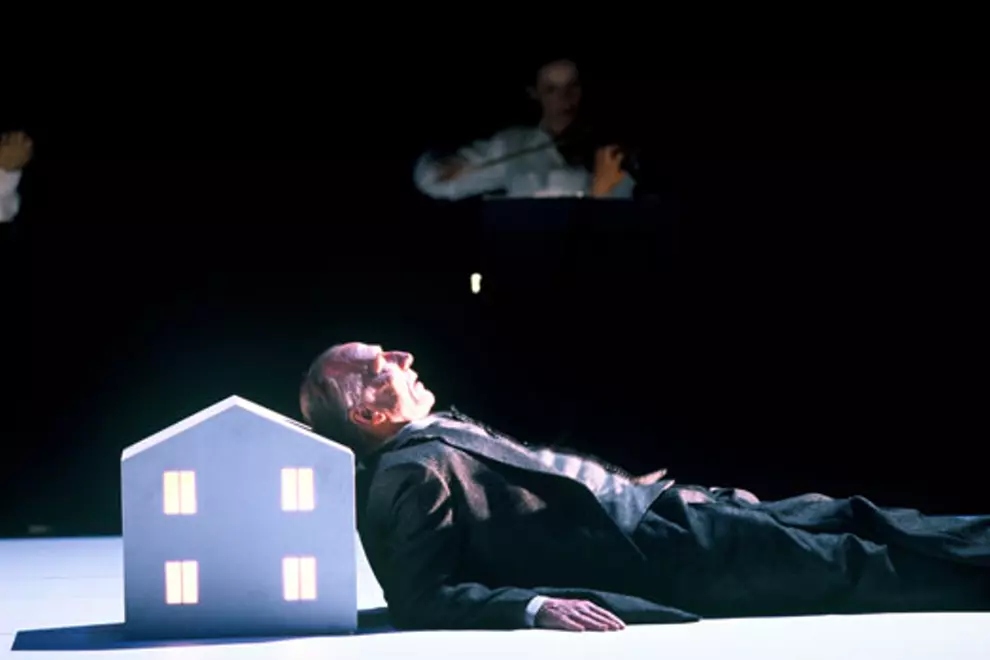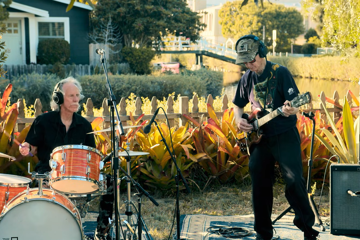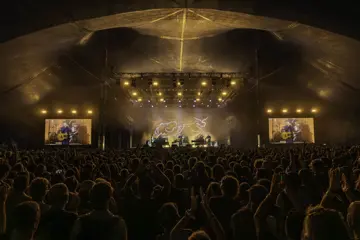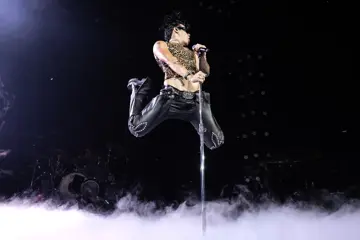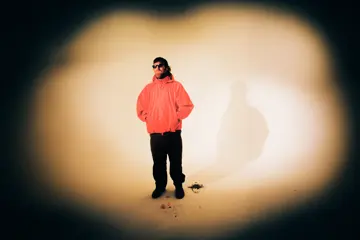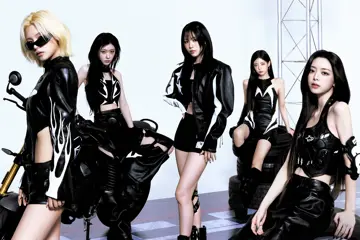No stranger when it comes to adapting written works for stage – though not in the way one might expect – Heiner Goebbels has previously drawn on the writings of, among others, T.S. Eliot, Maurice Blanchot and Samuel Beckett for his music theatre production I went to the house but did not enter, and in 2007 he composed Songs Of Wars I Have Seen, a staged concert with words by Gertrude Stein to be performed by the London Sinfonietta and the Orchestra in the Age of Enlightenment.
In each instance, Goebbels kaleidoscopic rendering of these works is as multifaceted as his own resume. A renowned composer of orchestral contemporary music, director and professor at the Institute for Applied Theatre Studies, Goebbels' recent works encompass his diverse skill set.
Eraritjaritjaka, (its title an Indigenous word from the Arunta language that means 'full of desire for something that has been lost'), which premiered in 2004 and makes its way to the Sydney Festival this month, takes the philosophical musings and diary entries of Nobel laureate Elias Canetti as its inspiration.
With a creative team that includes French actor André Williams, Amsterdaam's Mondriaan String Quartet, and video work by Belgian filmmaker Bruno Deville, Goebbels has created in Eraritjaritjaka, a work which he defines as polyphonic, where each theatrical element is of equal importance to the whole.
“When the elements of stage are ranked completely, or ordered hierarchically, like in a Wagner opera in the first sense, or in conventional theatre in the other sense, then you have new space as an audience to look at in its own way. But when you see a work that is what I would call polyphonic – not in the direct musical sense, but in the sense of using this term for all the voices on stage; the light, the music, the actor, the words, the space,” Goebbels clarifies, “in a polyphonic sense, lots of perspectives are possible, and that's what I want to offer.”
Given his history of working with or from the writings of others, it seems appropriate to ask Goebbels where the appeal lies in these authors, what their words offer the creative visionary who comes 'after'.
“The attraction is different between Canetti and Gertrude Stein for example. Gertrude Stein has high musicality, she has a rhythm full of repetitions, and they give you a space for your own imagination. It is actually the blankness of her writing which is opening up your mind.
“When I look at Canetti, every single word has a meaning and so I basically chose words by Canetti that raise questions to our own way of living and our own observation of the other, of the questions of how to live with someone else. You have the pleasure of unpacking meaning because his words are so condensed, so substantial that you can read them over and over again and you will take something different out of it every time.”
All this leaves the question: is the viewer with a better knowledge of Canetti, or Stein, or Beckett, offered something more in such works?
“It's not necessary that the audience prepare – it absolutely doesn't harm – but it's good to be without preconditioning for such work, because what is it? Is it a concert? Is it a reading? Is it theatre? Is it a film? It's all of that, so if you expect something specific you might be disappointed; if you are open then you will see something and experience a state of mind in which you can't trust your senses.”
WHAT: Eraritjaritjaka
WHEN & WHERE: Wednesday 9 January to Sunday 13, Theatre Ryal, Sydney Festival NSW

